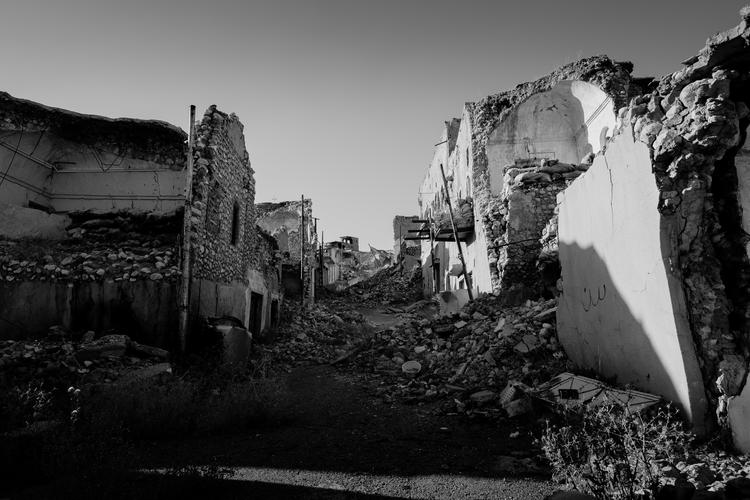Navy Lt. Kylan Jones-Huffman was killed in Iraq in August 2003. His story is one of many untold episodes in the terrible history of human conflict
By Ibrahim Al-Marashi |
( San Francisco Chronicle ) – If someone had asked the students at my Monterey high school which one of us would be the first to go to Iraq, everyone would have probably said me. After all, my parents were the ones who emigrated from Iraq in the 1970s to escape Saddam Hussein’s brutal dictatorship. We were just waiting for a safer time to visit our relatives and make pilgrimages to Iraq’s many shrines.
But Kylan Jones-Huffman, a student I ran track with, ended up being the first. He would lose his life there in August 2003 as an intelligence officer temporarily assigned to the I Marine Expeditionary Force during the Iraq War.
Kylan was a well-liked, well-read student — a “jock-nerd” if you will. We didn’t speak much but he was always kind to me and even stood up for me when other students picked on me for being Iraqi and Muslim. He was a year ahead of me in school and we lost touch after he graduated. But from his obituary, I saw how his life had paralleled mine. During his undergraduate years at the U.S. Naval Academy in Annapolis, Md., he studied Arabic and Persian just as I had at UCLA. He, too, had wanted to become a university history professor. In early 2003, he’d been accepted to a doctorate program at George Washington University and presumably would have started that fall. Meanwhile, I would go on to graduate a year later from my own doctorate program in history.
Kylan was also a budding poet. He was a member of an online haiku group in which he shared his poems while abroad. The last one he ever wrote:
uncomfortable — / body armor shifting/ on the car seat
My old classmate would lose his life in that same body armor in the scorching heat of Al-Hilla, about 60 miles south of Baghdad, not far from where my family is from. He was there to brief arriving Polish and Spanish troops on Iraqi cultural sensitivities and differences. While sitting in the passenger seat of a Humvee stuck in traffic, a gunman approached and opened fire.
His final poem — more poignant words, I could not imagine. Art reflecting reality.
I picture Kylan, sitting uncomfortably, sweating under his body armor in the last moments of his life. His killing was one of the first acts of an insurgency that grew from the official end of combat that President George W. Bush had declared on May 1, 2003. That insurgency against the U.S. occupation of Iraq would last until 2011 when U.S. forces finally left the country. Kylan was the 64th fatality out of an eventual 4,424.
But he, like everyone else who lost their life, was more than a statistic.
It would take 20 years for America to have any sort of meaningful reckoning on why our country went to war and the repercussions for the nation, the region and American foreign policy. However, as a historian who spent much of the past 20 years studying the aftermath of the invasion, what’s always been missing from these conversations is the human element — the individuals, both Iraqi and American, who became victims of the war and occupation. I have written about some of the Iraqi victims in the past, such as the 2006 Mahmudiyya murders, when five U.S. soldiers gang-raped and killed a 14-year-old Iraqi girl, murdered her father, mother and sister, dousing the family in petrol and setting the home on fire to hide the evidence. I also wrote about how in 2007, U.S. private military contractor Blackwater massacred 14 Iraqi civilians in Nisour Square in Baghdad.
Kylan was a victim, too — alongside the hundreds of thousands of Iraqis and thousands of Americans who died as a result of the invasion. All of their lives were lost due to faulty intelligence in Washington, D.C., used to justify the war. The politicians behind that deadly decision will never be held accountable for their actions.
It’s these same misguided rationales that historians like myself see driving most wars, and the toll on society is always heavy. Kylan’s life is one episode in this greater history of combatants and civilians — untold numbers of people who have died or endured post-traumatic stress disorder. There are victims of gender-based violence during conflict, those maimed by landmines and amputees, many reliant on prosthetics. Landscapes and waterways are poisoned by Agent Orange, depleted uranium or white phosphorus. Animals killed on the frontlines or dying underneath rubble. And eventually, there are always internally displaced people and refugees desperate for any sense of peace and safety.
Over the years, I’ve been working on a course that centers these stories instead of the conventional military history so commonly taught. It’s a course I call “Victims of War.” My hope is that one day I’ll be able to teach it, and I know Kylan will be right there beside me — as the history professor he always wanted to be.
Ibrahim Al-Marashi is an associate professor of history at California State University San Marcos. He is co-author of “Iraq’s Armed Forces: An Analytical History and The Modern History of Iraq.”
Reprinted from San Francisco Chronicle with the author’s permission.
Featured photo: “Photo by Levi Meir Clancy on Unsplash“



 © 2026 All Rights Reserved
© 2026 All Rights Reserved